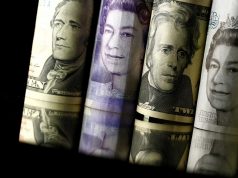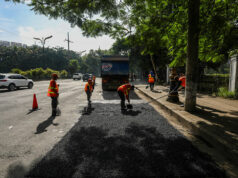Duterte issues 5 vetoes vs. perks in tax reform bill
PRESIDENT Rodrigo R. Duterte exercised his Constitutional powers by issuing five line-item vetoes against tax perks contained in Republic Act 10963, the tax reform legislation which he signed this week.
In a letter issued by the Palace formally notifying the House of Representatives of RA 10963’s signing, a copy of which was distributed to reporters Friday, Mr. Duterte said he vetoed the 15% preferential tax rate for employees of regional headquarters (RHQs), Regional Operating Headquarter (ROHQs), Offshore Banking Units (OBUs) and petroleum service contactors and subcontractors.
He said the preferential tax “is violative of the Equal Protection Clause under Section 1, Article III of the 1987 Constitution, as well as the rule of equity and uniformity in the application of the burden of taxation.”
He added that “the overriding consideration is the promotion of fairness of the tax system for individuals performing similar work. Given the significant reduction in the personal income tax, the employees of these firms should follow the regular taxrates applicable to other individual taxpayers.”
He also vetoed zero-rated sales of goods and services by registered enterprises or those within tourism enterprise zones which cross into a separate customs zone, saying that the provisions “go against the principle of limiting the VAT zero-rating to direct exporters. The proliferation of separate customs territories, which include buildings, creates significant leakages in our tax system.”
Mr. Duterte’s third veto covers RA 10963’s exemption from the 3% percentage tax for professionals and self-employed with gross receipts not exceeding P500,000, noting that such entities are already VAT-exempt and 3% “is considered their fair share in contributing to the revenue base of the country.
A fourth veto concerns the exemption of petroleum products from excise tax if the products are used as inputs, feedstock or raw material “in the manufacturing of petrochemical products, or in te refining of petroleum products, or as replacement fuel for natural gas-fired combined cycle power plants.”
He said the exemption is ‘too general, covering all types of petroleum products,” and “may be subject to abuse.”
The fifth item vetoed concerns the earmarking of incremental tobacco taxes, with Mr. Duterte noting that the tax reform legislation “effectively emends the Sin tax law, or RA 10351, which provides for guaranteed funds for universal health care. The (vetoed) provision will effectively diminish the share of the health sector in the proposed allocation.”
At press time, government economic managers have not provided analyses of the line-item vetoes’ impact on projected revenue.
Various contentious items in the tax reform bill were allowed to stand, including the excise tax scheme for thermal coal which exempts domestric producers from VAT, and a smaller-than-expected increase in the tobacco excise tax, among others.
The tax reform program hopes to increase take-home pay for most wage-earners, compensating for the lost revenue with excise taxes on fuel, cars, sugar-sweetened beverages, and closing some VAT loopholes. It also simplifies the system for calculating the donor and estate taxes while lowering the rate charged.



